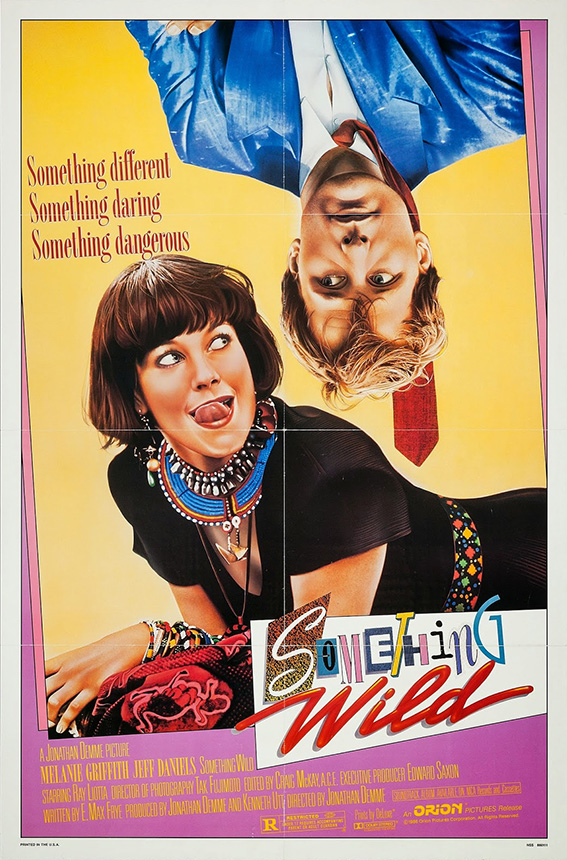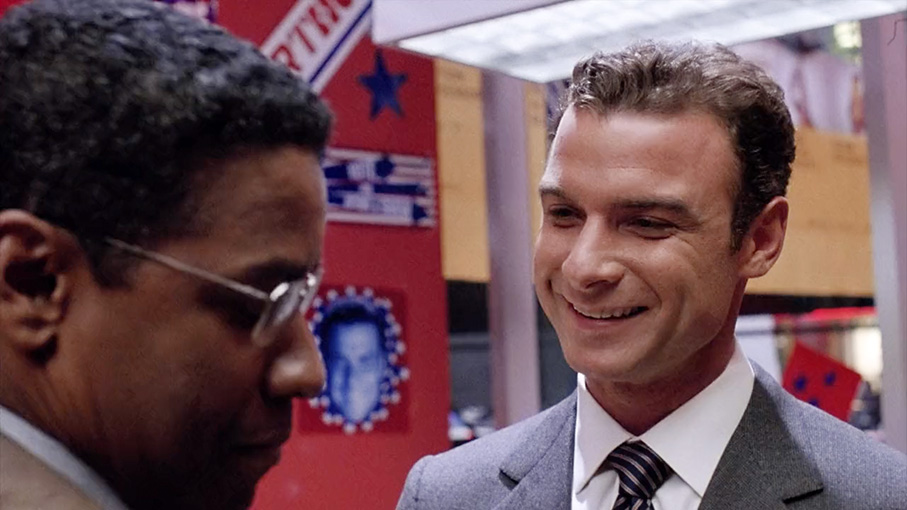I seem to remember Christopher Lee once wearily predicting that when his time came, the British newspapers would largely ignore the fact that he had appeared in something like 280 films and television productions and announce in their headlines that Dracula had died. Similarly, while I was genuinely startled by the news of director Jonathan Demme's death last week, it came as no surprise to me that most of the headlines I encountered were variations on "Silence of the Lambs' director dies." There's an inevitability to this, as newspaper columnists fret that you'll not read a story unless you have some sort of personal connection to it, and in a career that includes 61 directing credits, The Silence of the Lambs is without doubt Demme's most famous and widely seen movie, his biggest Oscar winner, and the only film of his that spawned a string of sequels and spin-offs. Look up Demme on the Internet Movie Database and what does it say? "Jonathan Demme – Director, The Silence of the Lambs."
If it seems like I'm about to start smacking down Demme's most famous film achievement, I absolutely am not. I love The Silence of the Lambs for a whole variety of reasons, most –though not all – of which have already been explored in some depth by others. One day, should I ever find the time to leisurely be able to write about whatever I want, I may pen an article on exactly why. There are small things in that film, sometimes brilliant moments that may not seem that special to others, that I think are worthy of detailed examination. Another time, perhaps. Of course, such widely-seen films also offer a useful doorway into a director's body of work for those not familiar with his or her previous or even later creations, and if The Silence of the Lambs prompted even a few newcomers to Demme's cinema to explore his back catalogue and keep an eye out for his future projects, then more power to it.

I genuinely can't remember what Johnathan Demme film I saw first. It's quite possible that it was Melvin and Howard, his entrancing 1980 story of a gas station attendant played by Paul Le Mat, who is named in an immediately contested will as the prime beneficiary of the estate of the late Howard Hughes (a superb Jason Robards), whom he once helped and befriended without having a clue who he was. But I have a feeling I came to that retrospectively after being introduced to two very different Demme features from the mid-80s by an enthusiastic Camus. The first was Something Wild, a wonderfully offbeat tale of a straight-laced company man (Jeff Daniels) who is seduced and taken on a wild ride by a red-hot Melanie Griffith, only to then find himself in conflict with her semi-psychotic boyfriend, played by Ray Liotta. The second was a very different story indeed. Swimming to Cambodia is a seemingly straightforward record of actor and writer Spalding Gray as he delivers an 80-minute monologue to an assembled audience about the situation in Cambodia and his experiences working on The Killing Fields. I remember distinctly being serious bored by this, primarily because I found Gray himself such hard work which meant I couldn't engage with a single thing he said. A few years later, I was visiting Camus and he was tied up at work and left me to amuse myself with his sizeable film collection, and for some reason I decided to give the film another go. This time it clicked, and I was captivated from the off. Odd how that sometimes happens. Demme's real skill here was to make himself invisible, to convince us that we were just watching Gray and that the director was doing nothing, when in fact he was quietly keeping us on board with his savvy camera placement and editing decisions.
It wasn't long after that I saw Married to the Mob, which remains one of my personal favourite Demme films and one that for me – along with Something Wild – defines what made his early work so distinctive. These were offbeat genre films that played games with the rules that defined them as such, classy and intelligent B-movies with a seductively indie edge and a flair for the unexpected. And let's not forget that Demme was the man behind what remains one of the finest music documentaries of all in the shape of the 1984 Stop Making Sense, a captivating record of The Talking Heads in concert, one whose opening walk on stage and performance of Psycho Killer by David Byrne just has to be my favourite start to any music-themed movie.
Still to this day I can't imagine what went through the mind of whoever it was who decided that on the basis of these movies, Jonathan Demme was the perfect person to direct an adaptation of Thomas Harris's serial killer bestseller, The Silence of the Lambs, but the choice was inspired. As I said above, Demme gets so many things right in this movie that it deserves its own article, and I'll freely admit that it's the Demme film I've probably watched more times than any other. It seems so typical of the independent spirit that distinguished Demme's early work that he went directly from this film's blockbuster success to an intimate documentary about his cousin Robert Castle, who works as an Episcopalian minister in Harlem. Cousin Bobby is not the easiest film to track down even now, but it's really worth seeing if you get the chance. He followed this, of course, with Philadelphia, the first major American film to deal directly with the AIDS epidemic and Demme's second Academy Award-winning movie.

In subsequent years, Demme varied his projects, directing short films, documentaries, music videos and even episodes from TV series. Intermittently, he returned to feature films with varying degrees of success. The 2002 The Truth About Charlie didn't exactly set the world on fire, but his 2004 remake of The Manchurian Candidate, a project that on paper seemed doomed to languish in the considerable shadow cast by John Frankenheimer's classic original, proved to be a surprisingly effective and timely update.
Only recently did I work my way back to the start of Demme's directorial career and the trio of engaging exploitation movies he made for Roger Corman, Caged Heat (1974), Crazy Mama (1975) and Fighting Mad (1976), and a smart comedy-drama he made in 1977 that was originally titled Citizen's Band and now seems to have been renamed Handle With Care. And if exploitation horror cinema is your thing, then check out William Sachs' 1977 The Incredible Melting Man and keep your eye on the supporting cast – Demme has a small but engagingly played role as half of a newly married couple that falls victim to the unfortunate mutation of the title.
That I tend to favour Demme's earlier work is par for course for this particular movie devotee. It's almost a given that many filmmakers tend to do their most interesting and adventurous work when they are young and hungry and brimming with fresh ideas, and Demme is no exception. A graduate of the unofficial Corman film school, he made films that played games with expectations and genre conventions, and did so with a wit, sense of adventure and skill for character and storytelling that ensures they still stand up today – just this weekend I re-watched Something Wild (I'd like to know who the hell has my DVD of Married to the Mob) and was as gripped and entertained as I was back when I first viewed it. His good-luck-charm policy of repeatedly casting actor Charles Napier in a variety of supporting roles led to anticipation about how large or fleeting his role would be in each new film, and Demme really understood how to get the best from his actors, prompting many of them to deliver some of their finest screen work. Think Jason Robards in Melvin and Howard, Melanie Griffith, Jeff Daniels and Ray Liotta in Something Wild, Michelle Pfeiffer and Dean Stockwell in Married to the Mob, Jodie Foster, Scott Glenn, Ted Levine and Brooke Smith in The Silence of the Lambs, Tom Hanks and Denzel Washington in Philadelphia...shall I go on? And who would have thought that anyone could sell us on the idea that singer Chris Isaak could convince as the leader of a SWAT assault team? Demme will be missed, but he leaves behind a body of work that I'll continue to watch and re-watch and recommend to others until my eyes dry up and fall out of my head. |